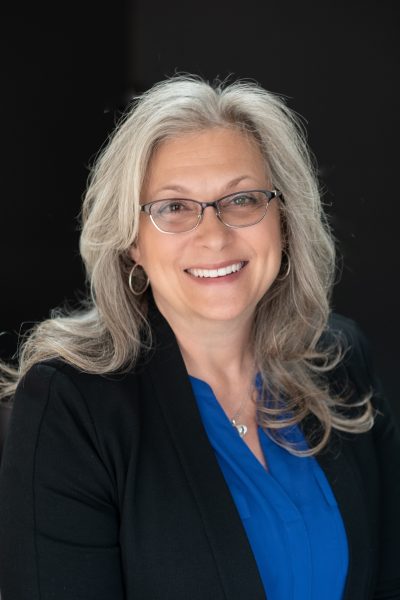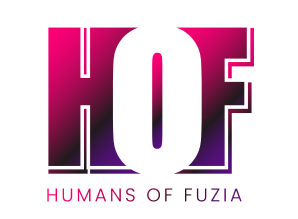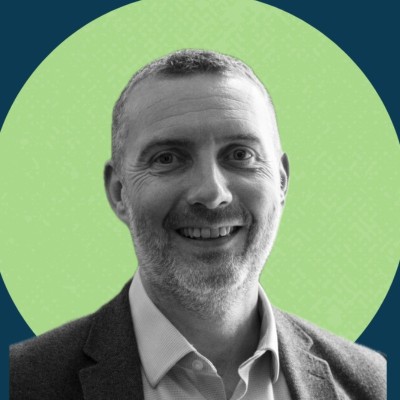Dr. Julie Donley, tells us that, “I’m a professional certified coach, speaker, and author with a passion for leadership and personal development. My journey began when I started working in behavioral healthcare as a psychiatric technician and then obtained my nursing degree. I eventually became an executive in behavioral healthcare, serving as a director of nursing.
Working in a challenging environment, I experienced firsthand the profound impact that effective leadership—or the lack thereof—can have on both employees and patients. This realization ignited my passion for studying leadership and understanding how to create healthy, productive work environments.
My career in nursing overlapped with my coaching journey, which began in 2001. I faced numerous personal and professional challenges that tested my resilience and determination, fueling my desire to help others navigate their own paths, overcome obstacles, and become better versions of themselves. Coaching became the perfect avenue to support others in achieving their goals.
Today, my focus is on helping leaders lead more effectively, reduce their stress, and become more confident in addressing challenging situations. My latest initiative, my book Leading at the Speed of People, aims to revolutionize the way we approach leadership by emphasizing respect, empathy, and the human side of management. I’m excited to continue making a difference through my coaching, writing, and speaking, inspiring others to lead with purpose and compassion.”
What were your early years like? Could you share a bit about your life before you began your coaching journey?
My early life was normal. I was a kid, what did I know? It was fun and I had some great experiences. There were things that were not quite right, but it wasn’t until my teen years when things became really challenging. My parents divorced when I was sixteen, leaving me with an emotionally absent mother and a father who was checked out and verbally abusive, although he never saw himself that way. His way of controlling us and instilling fear was through his words. I moved out as soon as I could to gain my freedom, but I was unprepared for adulthood. I found solace in using drugs as an escape.
It took me several years to climb out of that hole and find my path. I had to learn to be okay with myself. In 1993, after eight long years of working odd jobs and studying business, I enrolled in nursing school and took a job on an adolescent unit in a psychiatric hospital.
I loved it! I loved the kids, and I loved the work. However, it was an unhealthy work environment, headed by an ineffective leader, and one day, I had a bad encounter with her. This encounter made me realize that leaders can make work easy, or they can make it harder than it needs to be, and often, they do not know the impact they have on others. While continuing my studies in nursing, I set out on a path to understanding what makes for good leadership, eventually obtaining my doctorate in leadership.
During these years, while completing my nursing education, I married, had a child, and then became gravely ill. I suffered tremendously over the course of a year and a half, requiring blood transfusions and major surgery to save my life and then a follow-up surgery a couple of months later. Shortly thereafter, my marriage ended, I completed my master’s degree in business, and I experienced three layoffs in a row as a single mom!
I realized during this time just how resilient and capable I was. I just kept moving forward and taking the next step. What else was I going to do with a young child to raise? My last layoff occurred in 2001. Why did this keep happening to me? I conducted some soul-searching. What did I believe was success? And how did I want to contribute to others? I did a lot of reading, and one day, I came across an article written by a coach. I contacted her and hired her as my coach. I wondered how she was doing this, and after only a few sessions, I began my coaching journey by enrolling in a coach training program, joining the International Coaching Federation local chapter, and getting involved. I was open for business!
Was there any turning point in your life that changed your journey? If so, what was it? Please tell us the backstory behind it.
I’ve been coaching since 2001 and have had a wonderful journey coaching leaders at all levels, speaking to audiences across the U.S., writing articles for publication, and publishing three books. My first book focused on self-awareness and acceptance, a topic very personal to my journey. The second book was about making change easier by understanding how the brain fights to maintain the status quo and then presenting eight strategies for the reader to use to approach changes in their life. Up to this point, my life had been incredibly challenging, and I was in search of ways to make life a bit easier.
The next decade brought numerous hardships—my ex-husband passed away suddenly, I faced ongoing medical issues related to my previous surgery that often sent me to the emergency department, and I had to undergo several more surgeries during that time. Life was demanding a lot of me! To maintain a steady income, I picked up shifts in a local psychiatric hospital, working on different units.
Life was changing. The economy crashed due to the real estate bubble bursting, and people were scared, leading to less money being spent on coaching or speaking. During this time, I also got married. One Saturday morning, I awoke early for a day shift at the hospital while my family slept, and I thought, “What am I doing?” I realized I had started working more at the hospital and less in my business. It had become harder to differentiate myself in the coaching market, and frankly, I was a bit burnt out. Running a business is a lot of work!
So, when a behavioral healthcare organization reached out to me about a management position, I jumped at the opportunity. I wanted to apply all the leadership skills I had learned over the years. In 2012, I became a director of nursing serving children and adolescents. During this time, I completed my doctoral studies in leadership, researching work environment and its impact on employee outcomes, specifically job satisfaction.
After receiving my doctorate, I was motivated to return to running my own business full-time, realizing that I could make a bigger contribution to society by influencing leaders through my books, coaching, and speaking. My latest book, Leading at the Speed of People, is being released in the Fall of 2024, and I am very excited to make a difference in how people lead and experience leadership!
Everyone faces unique challenges when starting an entrepreneurial journey. The most valuable lessons often come from understanding how these challenges are managed. Could you share the difficulties you’ve encountered and the strategies you’ve used to cope with them?
I have faced multiple challenges in business. Like other entrepreneurs, I needed support, systems, and a strategy. I also needed to focus on my vision for success.
One of my challenges during my first time in business was not hiring an assistant early enough to support me. I struggled to let go of control and trust that someone would do things in my best interest. I had a lot to learn. When I returned to business in 2020, I hired someone right away. Part of this was learning to let go of control, being willing to delegate, and asking for help. You can go a lot further faster when you have a team of people assisting you.
Another challenge is not getting distracted by what other people are doing in their businesses. It’s too easy to compare yourself with others and feel inadequate. But that is not helpful! You must know where you want to go, what you want to be doing, and why you are doing it—your vision, mission, and purpose or reason for being in business. No one else will do things exactly as you do them. In fact, during my first few years in business as a coach, I learned pretty quickly that most people did not make the kind of money I wanted to be making. I had to be careful watching anyone else and chart my own course for success.
In addition to watching others in similar businesses, it is important to be cautious about everyone who tries to sell you something that could help your business. There is so much noise in the marketplace! It is easy to be distracted by others who do their best to get you to buy their wares. That is, after all, the goal of any business owner—to sell their products and services. But when you are an entrepreneur, it is easy to be persuaded that you need something when you really do not. It is also easy to be distracted from your primary focus and goal. This is often called “shiny object syndrome.” Remain true to yourself and be clear about your vision to avoid wasting time and money chasing something that is not aligned with who you are or who you want to be as you grow yourself and your business. Don’t be afraid to hire someone like a business consultant or coach to help you figure out the best course of action or learn some area of business where you may be deficient. But be sure you remain true to yourself and go at your own pace.
Understanding the time it takes to build a business from scratch is important too. Thinking you can get your business up and running in a month or two is folly. It can take a few years to build your business to where you are making a decent living. The focus for the first year is getting clear about your vision and mission, creating your brand, and putting systems in place (accounting, accepting payments, getting a website, networking, etc.). While you start marketing your services right away, it is in year two where this becomes your major focus, getting the word out so people know who you are and how you can help them. People need to know you exist and trust that you understand their problem and can provide adequate solutions. If you have done all of that successfully, then in year three, you should see your efforts pay off.
There are three areas of development when starting your own business:
- Becoming an expert in whatever you plan to sell (coaching, virtual assistance, designing websites, etc.).
- Becoming an expert in business (accounting, marketing, strategic planning, etc.).
- Becoming a better person through personal development (ensuring you are taking care of yourself, creating a great life, and not working 24/7, etc.).
My advice to anyone is to know your values, know why you are in business, be clear about what you want, and identify your needs for getting there. Do not overthink it; dive in and adjust as you go. Stay focused on your vision for success and what you want to achieve. You do not need to be fancy; take one step at a time and just be authentic. Follow your heart and your intuition—you know what is best for you. You will need to take time to consider any decisions, so you do not fall victim to impulsiveness or other traps of the mind where you think others have your answers for you. No one can build your business for you. You can do it; just be methodical about it. Know that there is much you do not know, so be open to learning. Trust that the answers will become clear when you honor yourself.
What impact do you feel you have been able to create with your work so far and how would you want to grow in the next few years?
I believe I have positively impacted many people through my leadership, writing, speaking, and coaching, as well as through my work in psychiatric nursing. I strive to make people feel seen, acknowledged, and appreciated. Each person has infinite value that they often do not recognize in themselves. I want people to know how important and brilliant they are in their own way. I have the utmost respect for all individuals, and I trust that people feel my respect and acceptance when they interact with me.
My intention is to start a movement for a more respectful world. My new book, Leading at the Speed of People, to be published in late 2024, initiates a conversation on leading effectively by treating people with respect and empathy. We must shift how we lead so that leaders stop focusing solely on productivity and outcomes to our detriment and start understanding the human nature of people and appreciating human messiness. We need to nurture our employees and care about their well-being to tap into their brilliance and creativity.
My articles and future books will continue to center around the topic of respect—how to be more respectful toward ourselves and how we respect others. This is something we must learn and practice to begin making a difference in how we treat ourselves and each other.
In the next few years, I intend to continue developing myself as a masterful coach, a popular author (I aim to be a best-selling author), and a highly sought-after speaker.
Would you like to share with our aspiring young women entrepreneurs the changes you would like to see in the world if given the opportunity?
If we could all be more respectful to ourselves, we would learn to be more respectful toward others. If we do that, we can change the world.
Respect means listening to one another without trying to fix, change, or judge. It means caring for ourselves and our well-being. It means learning to be more empathetic and understanding. It also means respecting power—the power of our positions, status, and demographics—and stopping using power to separate, weaponize, and control others.
By fostering respect in these ways, we can create a more compassionate, inclusive, and harmonious world.
Women are increasingly becoming a powerful presence in workplaces worldwide, breaking through glass ceilings and reaching top leadership positions. What are your thoughts on women’s leadership today?
Women have a significant role to play in changing the world for the better. It’s important for women to learn the tools they need to find their voice and not simply follow the crowd or emulate men. We need to approach leadership differently if we are to make a meaningful impact. This means doing the right thing and advocating for it, even when it is not the popular choice. We must learn to appreciate and acknowledge one another, respect each other, and collaborate more effectively. To achieve this, we need to develop our self-esteem, overcome any imposter syndrome, and separate ourselves from the behaviors of others. Emotional competence is key.
Women have been subservient for so long that it is ingrained in our generational DNA—and in many cultures, this perspective persists. We need to create new narratives of strong, competent women who stand for something, respect themselves, and use their power for good, healing, and inclusiveness. We must model new ways of showing up and approaching leadership to create work environments that support the best in others and ourselves.
By doing so, we can foster a culture of respect, empathy, and collaboration, paving the way for a more inclusive and equitable world.
Your grit and determination are making a significant impact, serving as an inspiration for many aspiring entrepreneurs. What message would you like to share with our young women leaders and audience reading this?
I am someone who follows my own path. Each of us must find out what our life’s purpose is, how we want to show up in the world, the difference we want to make, and who we want to be—the impact we want to have as we travel our journey. No one else will take the same road or travel the same path. There is no one else like you! Focus your efforts on becoming the best you can be—the best YOU you can be. Develop your gifts so you can offer the world more of you.
I am still learning and developing myself. I still do all the work I teach and coach for myself. I keep wanting to grow and evolve and become better at being me. I’m not sure we ever arrive; we just get better at it and feel more comfortable and confident as we develop. Life isn’t really a destination; it is a journey. Along my journey, I have suffered and grown, becoming more aware and alert to all that life is and has to offer. I seek authenticity—how to be more of what I am capable of being. I want to maximize all that is possible for me in this lifetime. As I get older, I realize that much of this is about releasing myself or unlearning what society or others have taught. It is more about letting go or subtracting than about adding anything new. So, I am open to learning while I continue to expand and develop my intuition, my deep inner knowing, my connection to the Universe—to all that is—so I can contribute more to others and experience all that is possible for me in this lifetime.
Focus on your journey, stay true to yourself, and keep evolving. The world needs your unique contributions, and you have the power to make a significant impact.










